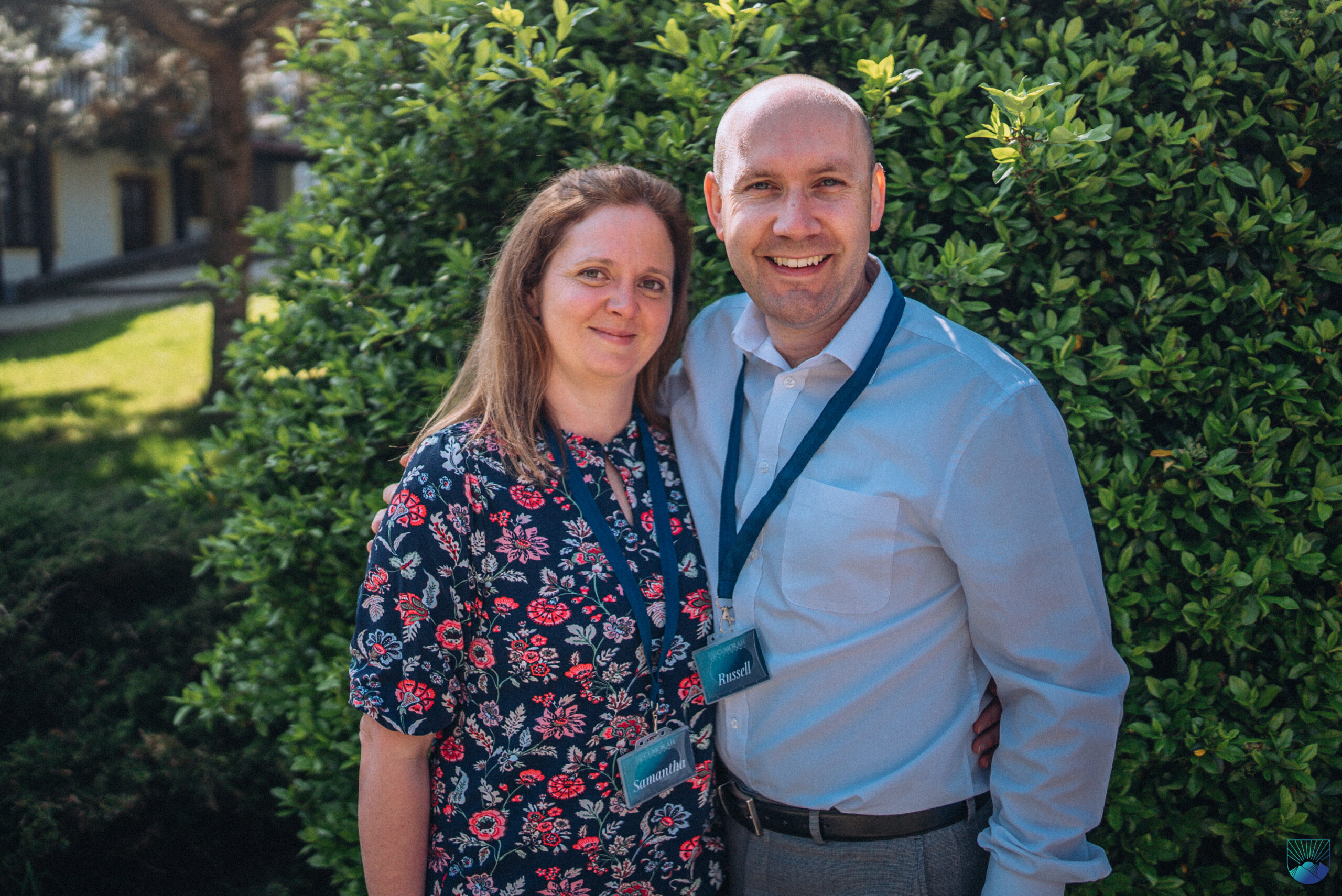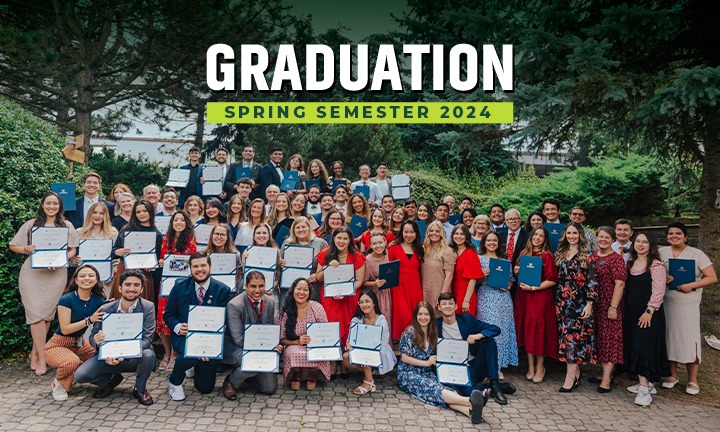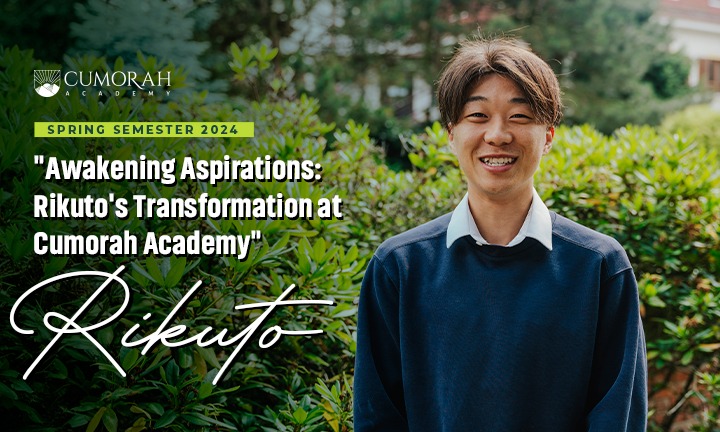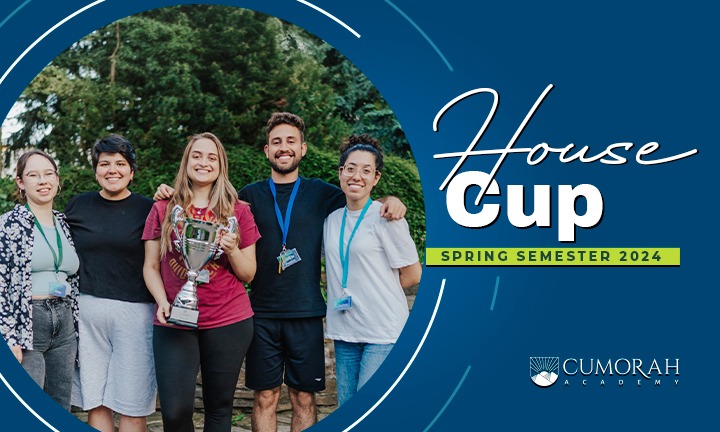From May 22 to May 26, the Ford couple were the mentors for the week at Cumorah Academy. They taught the students about Communication and shared valuable experiences of their personal lives and careers. The first warm-up with the young adults was a hike in the mountains near the campus to find some ruins and the “Thor hammer”.
Meet the mentors: the Fords
Russell and Samantha are from Leicester, United Kingdom. They were married on the 30th of December 2000 and have five children, aged 10 to 21.
Samantha is a seminary teacher with a bachelor’s degree in history, which she loves. She has also volunteered with horse riding for the disabled and worked in education to enable adults with disabilities. In her free time, she enjoys walking with her dog.
Russell served a mission in France and Switzerland and is the current bishop in his ward. He earned a bachelor’s degree in law and ran his own business as a lawyer. He loves football and motorbikes and enjoys keeping fit.
Career changes
Cumorah Academy: Both of you have changed your careers and then returned to your original ones. How was this process?
Russell: We started studying the subjects we enjoyed the most. Sam loved history, and I had a passion for studying law because I wanted to follow in my father’s footsteps. However, we ended up pursuing different jobs. But deep down, we always wanted to return to our original careers. It was always within us, the desire to go back to our initial professions. So, I became a lawyer, and my wife became a teacher.
Going Back to School
When we were older, we had to go back to school and obtain additional qualifications. For me, as a teacher with a law degree, when I decided to switch back to law, I had to return to school for an extra year of postgraduate studies at the university. -o that, I had to undergo two years of training, one year back at the university, and two years of practical training. It took three more years of preparation for me to become a lawyer again. As for my wife, she had to go back to school for one year. It was a lengthy process, but only after completing our studies could we start working in our respective fields.
While my wife was studying, she was also working. As for me, when I went to university, I had a part-time job in an office. I can’t quite recall the job’s specifics, but I worked a few hours to earn enough money for our family. We both had to balance work and studies simultaneously because we needed income to support our family.
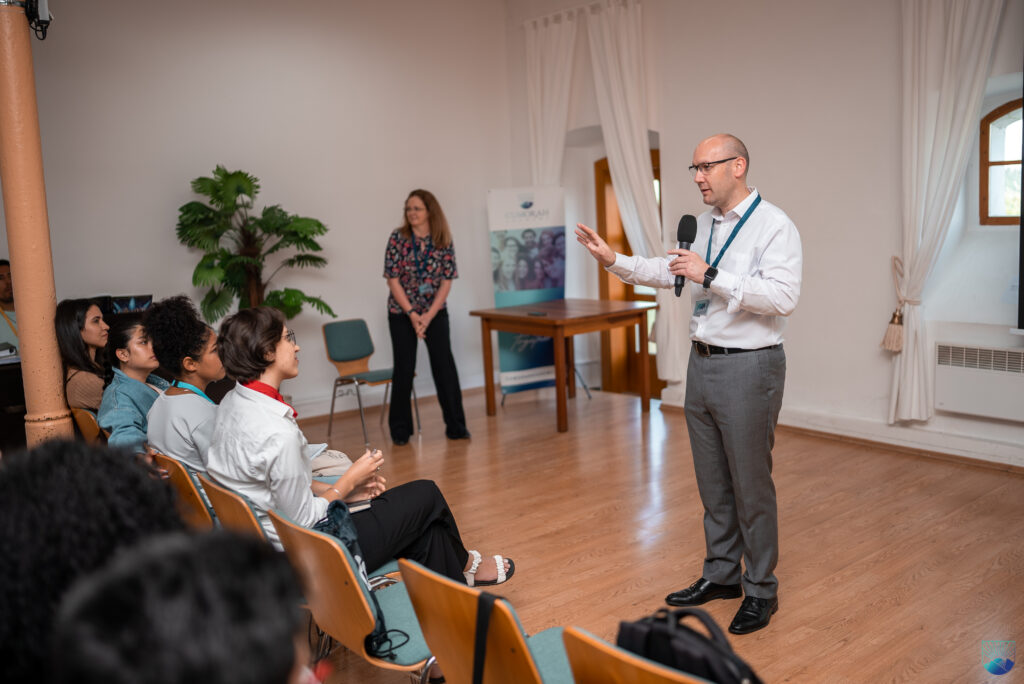
Couple’s communication
Cumorah Academy: Samantha, you were studying History at the University, but you decided to teach adults with disabilities. Why? Please also talk a little bit about inclusivity.
Samantha: I did think that after completing my degree, I might pursue my teaching qualification. However, by the time I finished university, I had already met Russell. We got married, and I was expecting my second child. So, we made the choice that I would stay at home with the children and make some sacrifices to do so. It turned out to be a great decision.
Then, when our youngest child went to school, I wasn’t sure what I wanted to do. Over the years, I had done some part-time work and volunteering. A friend told me about my current job, and I realized I liked the idea of working in education. I hadn’t realized that adult education was such a significant aspect of England until she explained it to me. So, I started as a teaching assistant and discovered that I loved it. Initially, I worked with adults who had mental health difficulties and learning disabilities. I found it incredibly rewarding. I started as an assistant and, with the encouragement of my manager and colleagues, I went back to university almost 20 years after my first degree to pursue my teacher training. Finally, I became a qualified teacher.
A Fulfilling Job
Now, I teach several classes a week to adults with learning disabilities. I teach independent living skills, health, and well-being, and also a local history volunteers’ group, which goes back to my original passion. It’s gratifying to help someone who didn’t have the best experience in education the first time around but genuinely wants to learn and understand more about our local area’s history or gain more independence. The small steps we take each week and being a part of that process are really fulfilling.
The importance of Inclusivity
I believe that as a society, both nationally and globally, we are moving toward becoming more inclusive. It’s crucial to recognize that we are all unique individuals and some of us may need more support in certain areas. There are many things we can do to promote inclusivity, accept everyone in our society, and create more equal opportunities for everyone to grow, progress, and develop at their own pace. This job is more than just a job for me. It’s something I truly love doing and find rewarding.
Coming back to it at a later age, I feel I have more experience, patience, and understanding. I am aware that there are areas in which I need to grow and develop as well. If I had entered this job straight from university, I believe it would have been a completely different experience. So, I am grateful for the opportunity to come back to it later in life.
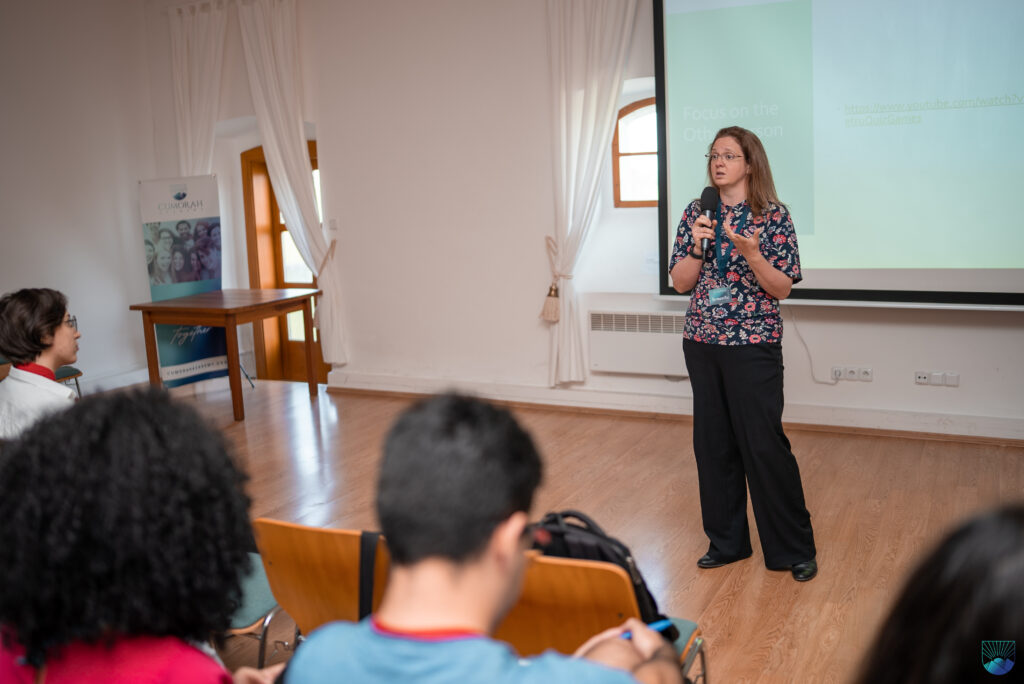
The Decision to Running a Business
Cumorah Academy: How did you decide to run your own business, and what skills did you need to rely on to succeed?
Russell: I decided to run my own business because my father had done it before, and that gave me confidence. I also knew that my father would be there to support me. I believe that without my father’s help, I wouldn’t have taken that step. He was like a mentor to me, guiding and showing me the way. Having someone close to me to provide support and guidance gave me the confidence to pursue entrepreneurship.
For me, the challenge was not being a lawyer since I already knew how to practice law. The real challenge lay in all the additional work and tasks that come with running a business – marketing, accounting, handling spreadsheets, managing cash flow, and providing training. I had a lot to learn because being a lawyer is one thing, but running a business involves many other aspects. It took me a considerable amount of time to acquire the necessary skills. I had to learn one step at a time. Thankfully, I had my father to lean on, and his support made a significant difference.
Support: a Key to a Successful Business
Cumorah Academy: So, you believe that everyone who wants to start a business or pursue something new needs someone else to mentor them?
Russell: Yes, I do. Maybe it could be a family member, a close friend, or even an old boss who is willing to help you. I don’t think you can successfully do it alone. Having people you trust and can rely on for advice is crucial.
Resources to improve communication skills
Cumorah Academy: If you could define active listening in a few words, what would it be? And why is it important in both personal and professional life?
Russell: Active listening, in my opinion, involves complete focus without any distractions. It means giving your full attention to the person speaking, without any extraneous thoughts or distractions like phones. That’s how I would describe it – complete focus. Active listening is incredibly important in both personal and professional life. For instance, when I communicate with my children, I need to listen attentively and observe.
Ask the Right Questions
For example, when I talk to my children, I really need to listen. And not just listen, but also look at their body language and listen to the sound of their voice to try to understand what they really mean. What are they telling me? If I say to my daughter, “How are you?” and she says, “I’m fine,” I need to be listening for more than just that. I’m not fine. I’m just telling you I’m fine. I need to listen to that. The same goes for my wife. And in my professional life, when I’m with others, I often say to them, “Tell me how can I help you. What do you need?” And then I must listen to their situation, and the problem they have, so that I can provide a solution. I must ask additional questions like, “Can you explain this? What did you mean when you said that?” Listening is so important for my job.
Communication Means Empathy
Samantha: Sometimes, it’s not about solving the person’s problems; it’s about letting them know that you’re there for them and empathizing with their experiences. In personal relationships, active listening is essential to building strong connections with family and friends. In a professional context, it’s crucial for establishing and maintaining relationships with colleagues and clients.
By actively engaging with others through listening, we can foster meaningful connections and create a supportive environment. Active listening is a skill that allows us to demonstrate empathy, understanding, and genuine interest in the people we interact with.

Emotional Intelligence
Cumorah Academy: In nowadays emotional intelligence has become more famous, but many people still lack it. In your opinion, how is it possible to improve?
Russell: I don’t know why, but for some reason, we are afraid of our emotions. We seem to think that emotions are weak and unreliable. We can’t trust our emotions. Or maybe they’re dangerous because they’re so powerful. That’s a problem. We seem to avoid them, and many people do. Obviously, we understand what happiness, sadness, and anger are. We know what they are. And because everyone is so busy and stressed, we have many mental health problems. We don’t take the time to understand how we feel and why we feel that way. And even if we stop and think about it, we often don’t talk to others. We need to talk and say, “I’m sad. I’m unhappy.” And we need to explain, as we explain, we better understand, and then next time we act differently.
So, I think the first thing is we shouldn’t be afraid of our emotions. And the second thing is we need to talk about them and be open, rather than pretending that we have none. I think those two things would help us be more intelligent with our emotions. We don’t need to be afraid of our emotions. They’re normal. They’re good. They help us, protect us, and guide us. These are important, so everybody needs to develop a better understanding of their emotions so that we can look after ourselves better.
Comparison Is Not The Way
Samantha: Understanding and controlling our feelings and responses to certain situations is an important aspect of emotional intelligence. While some people may naturally possess these skills, others may find it more challenging. Sometimes, we tend to compare ourselves to others and believe that they were born with more confidence or emotional intelligence. However, it’s not a competition or a race. We all have unique skill sets, and we all have areas where we can work on and improve. The key to enhancing emotional intelligence lies in recognizing our weaknesses and areas for improvement.
For example, if we realize that we lack patience or tend to get angry quickly, or if we struggle to separate ourselves from our emotions and respond appropriately, it’s crucial to acknowledge these areas. Instead of feeling overwhelmed, we can choose one or two areas to focus on and actively work on improving them. This can involve reading about the subject, seeking guidance from teachers, leaders, or friends, and practicing new approaches.
Choose What to Improve
Improvement takes time, and it’s essential to be patient with ourselves. Self-reflection is a significant part of the process as well. It involves thinking about how we can improve and what specific actions we can take. It’s important to notice the areas we want to work on and then seek out strategies and techniques to improve in those areas. Remember, we all have the potential to improve our emotional intelligence. Even if it doesn’t come naturally to us, with effort and dedication, we can become better.
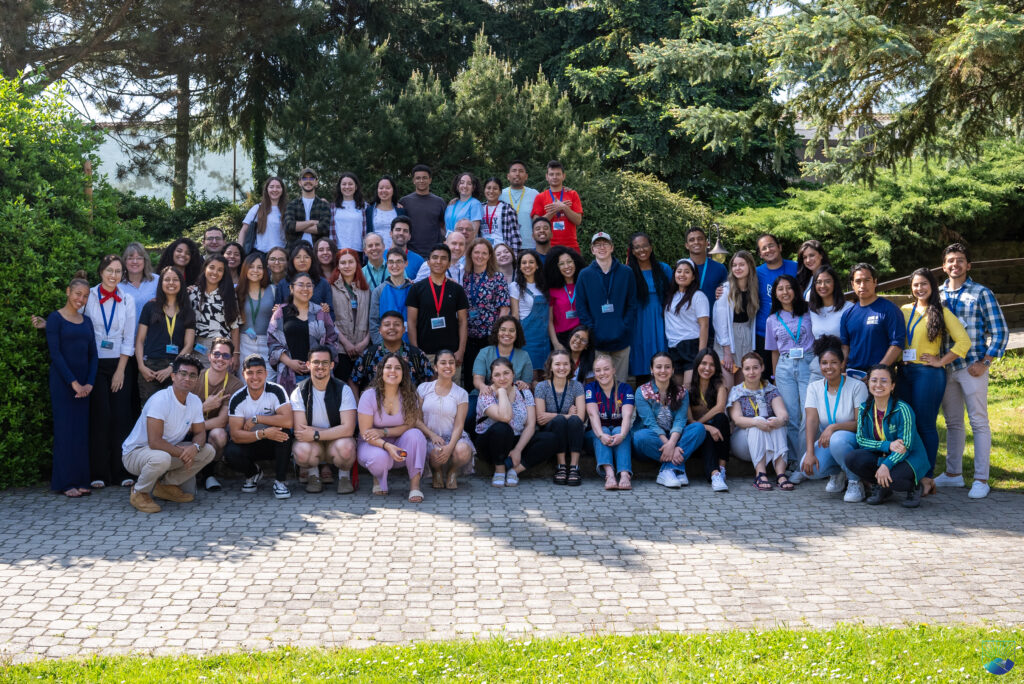
Conclusion
Students at Cumorah Academy can greatly enhance their communication skills by applying the principles of active listening and emotional intelligence. By becoming proficient in active listening, students can develop a deeper understanding of others, showing genuine interest and empathy in their interactions. This skill allows them to connect on a meaningful level, building stronger relationships and fostering effective communication.
Additionally, by cultivating emotional intelligence, students can better recognize and manage their own emotions and understand and respond appropriately to the emotions of others. This self-awareness and empathy contribute to more successful and harmonious communication, both in their academic pursuits and future endeavors, enabling them to navigate interpersonal relationships with sensitivity and effectiveness.

